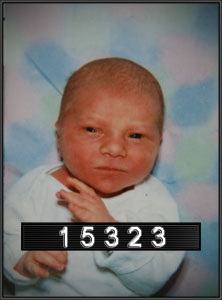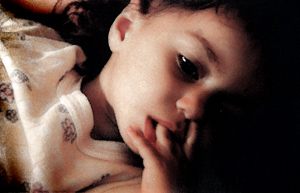One of the great frustrations with raising children is watching the endless bickering, fighting, and just plain meanness exhibited by our kids. We hope that somehow, as our children grow up, they will become kind loving, unselfish, and caring adults.
The sad truth is, though, that this is not automatic. In the adult world that we live in, there is still plenty of bickering, fighting, and just plain mean people floating around. Is the world full of nasty people? I don’t think so. In fact, I have noticed that some of the nicest folks I know tend to think the world is full of nice people, while some of the most selfish people I know, tend to think the world is, likewise, filled with selfish people. This observation has driven me to understand how important it is for my children that they grow up on the loving side of the fence. Because people tend to view the world through the lens of their own soul, selfish people will live in a world of selfish people, which is a miserable place to be, while caring, compassionate people will live in world that is caring and compassionate, and that is a wonderful place to be.
Once this thought took hold of me, the next logical question was this: As a parent, how do I raise my kids to be compassionate people?
Again, after much reflection, the answer came back to the obvious maxim:
Children imitate their parents.
Therefore, if you want your children to grow to become people of great compassion, you need to first grow your own level compassion.
In my book Essence of Wisdom for Parents, I encourage all parents to continually grow their level of compassion. In the past, people had the notion that attitudes and attributes like compassion were locked into their person and generally not something that was changeable. However, there has been some real interesting research on this subject by Richard Davidson, a professor of psychiatry and psychology at UW-Madison.
Richard Davidson’s story is interesting. He was invited by the Dalai Lama to study the positive mental health of Buddhist monks. His research eventually led him to usingMRItechnology to evaluate the level of compassionate brain activity in people before and after meditating on compassionate thoughts. What he found through his research, was that by consistently meditating in a compassionate way, the part of the brain that is active when we are compassionate actually grows.
For Christians reading this, it may seem, at first, like heresy studying another religion to learn about love, but I’ll suggest that if you believe that God’s laws are true, then the next logical conclusion is that they are discoverable. I think this is the jist of what Paul argues in Romans 2:15. Therefore, the idea that Buddhist philosophers, Confucius, or today’s observant psychology researchers might discover something of the world God made isn’t only impossible, it’s a near certainty. On the other hand, it is likely that their understanding of what they have observed will be limited without also having a greater understanding of God.
Having given all the disclaimers, I’ll suggest below a Christian oriented exercise to help grow a caring and loving attitude within yourself.
For the next 30 days, pray 30 minutes a day using the prayer pattern described below. If you do not feel like you can set aside 30 minutes a day to pray (which will be true of nearly all the readers of this post I am sure), then just do the best you can.
Start your prayer time by thinking about the people close to you that you love. Your parents, your children, your siblings, whoever it is that is closest to you. As you are praying for them, think about both their good qualities and those qualities that bother you the most, but then focus back on the love.
Every one of us, (yes – this includes both you and your family) has a mix of good qualities and real issues. With our close family, we have found a way to see past these issues and find the beautiful person underneath. As you pray for your family, you will also come to understand that many of the “issues” that your loved ones have are really scars from past pain in their lives. We all understand pain, and we all understand the scars that it can give us. Scars that can build up into a hard shell that begins to hide us from the rest of the world. Hide us from all except those caring enough to see through them.
As you continue your prayer, start to change your focus from your immediate family to other people in your life. Co-workers, neighbors, the people in your small group – whoever else is in your life. As you did with your immediate family, think about their good qualities and their bad qualities. Think about their scars, but also think about the wonderful human being that may be trapped behind those scars. This human being may need your love, your kindness, and your encouragement to break free of those scars.
As the final phase of your prayer time, change your focus again to people in your life that seem to make life difficult for you, a nasty boss, a troubling co-worker, whoever they may be and repeat this process outlined above. If they are nasty people, think about what their life must be like. Do they have a circle of warm supportive friends? Do they have a world filled with deep meaningful relationships? Quite possibly not. They may be living in a hollow empty world, perhaps filled with possessions, but not relationships.
As you start your prayer exercise, you will go into it understanding that the love and compassion you have for others runs at different levels. For your immediate family, you may have greater feelings than you do for your neighbors. Is this the way it should be though? Recall the old saying that was popular a few years ago – the question “What would Jesus do?”
Well in Mathew 12:46-50 we get our answer:
While Jesus was still talking to the crowd, his mother and brothers stood outside, wanting to speak to him. Someone told him, “Your mother and brothers are standing outside, wanting to speak to you.” He replied to him, “Who is my mother, and who are my brothers?” Pointing to his disciples, he said, “Here are my mother and my brothers. For whoever does the will of my Father in heaven is my brother and sister and mother.”
You see that Jesus does not love his immediate family any less than you do, what Jesus is demonstrating is that he doesn’t love any of his children any less. All the people in your life were created by God and deserving of your greatest love and compassion.
It is prudent to realize, as you exercise and grow your compassion for others, that being compassionate does not imply that you should be taken advantage of or that you know longer have to do time management. You do not have to give all your money to everyone who has a need. You will go broke quickly. Money is one of those things that the more you give, the less you have. However, you can give other more valuable things away. Kind words, a sympathetic ear, recognition, and encouragement are things that grow within you the more you give them away. My suggestion is to start with these as you begin to utilize the newfound well of compassion within you.
If you keep this prayer habit up, and this new outlook on people, you will find that your children will emulate it. As your children become teenagers and old enough to understand, take the time to talk to them about compassion and how to always look for the real person underneath the shell. If you do these things, then you will be on your way to setting your child up for a good life.



